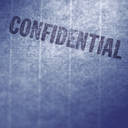Christopher Boehning

January 08, 2007 | Law.com
Defining Metadata EthicsIssues raised by the potential inadvertent disclosure of protected material through documents' metadata are not governed solely by the amended Federal Rules of Civil Procedure. While advisors have reminded lawyers they must perform ethical duties regarding the review and use of metadata, these duties are far from clear. John F. Baughman and H. Christopher Boehning, partners at Paul Weiss, review opinions by the ABA and Maryland Bar Association that seek to answer questions attorneys have been asking.
By John F. Baughman and H. Christopher Boehning
9 minute read

April 22, 2008 | New York Law Journal
Assessing Alternative Search MethodologiesH. Christopher Boehning and Daniel J. Toal, partners at Paul, Weiss, Rifkind, Wharton & Garrison, write that keyword and Boolean searches are blunt instruments, requiring a careful balance between an unduly restrictive search that may miss too many responsive documents or an overbroad one that threatens stratospheric discovery costs. Understandably, courts and litigants have been intrigued by alternative search technologies, such as "concept searching."
By H. Christopher Boehning and Daniel J. Toal
11 minute read

June 26, 2007 | New York Law Journal
'Peskoff,' Cost-Shifting and Accessible DataH. Christopher Boehning and Daniel J. Toal, partners at Paul, Weiss, Rifkind, Wharton & Garrison, write that a recent opinion provides an early look at how the process of integrating new federal rules into the prior e-discovery framework is proceeding.
By H. Christopher Boehning and Daniel J. Toal
14 minute read

April 08, 2011 | Legaltech News
Broad Federal Court Powers Under Evidence Rule 502(d)Federal judges can and will make use of protective orders to shield litigants from waiving privilege if they inadvertently produce privileged documents -- and the high cost of production and the volume of ESI militates in favor of entering an order. In two recent cases, nonwaiver agreements arose only after a series of other discovery disputes.
By H. Christopher Boehning and Daniel J. Toal
13 minute read

August 28, 2007 | New York Law Journal
Lines Blur Between Business, Personal DataH. Christopher Boehning and Daniel J. Toal, partners at Paul, Weiss, Rifkind, Wharton & Garrison, write that a recent survey revealed that 33 percent of employees use personal e-mail accounts at least once or twice weekly for business purposes, and that 17 percent do so daily. Unfortunately, doing so may expose the employee's personal e-mail account and home computer to discovery in litigation.
By H. Christopher Boehning and Daniel J. Toal
13 minute read

January 08, 2007 | Legaltech News
Defining Metadata EthicsIssues raised by the potential inadvertent disclosure of protected material through metadata are not governed solely by the Federal Rules of Civil Procedure. But if lawyers must also follow ethical duties regarding their ability to review and use metadata, what are those duties?
By John F. Baughman and H. Christopher Boehning
9 minute read

August 03, 2010 | New York Law Journal
Litigants Fail to Heed Lessons of 'Victor Stanley'In their Federal E-Discovery column, H. Christopher Boehning and Daniel J. Toal, partners at Paul, Weiss, Rifkind, Wharton & Garrison, write: For the benefit of those counsel who missed Magistrate Judge Grimm's warning in Victor Stanley concerning the need to conduct quality control sampling on their keyword search terms, the recent decision in Mt. Hawley Insurance Co. v. Felman Production Inc. states it loud and clear: counsel who fail to apply such quality controls when conducting ESI production and privilege screening invite the risk of involuntarily waiving privilege.
By H. Christopher Boehning and Daniel J. Toal
13 minute read

June 01, 2010 | New York Law Journal
Final 'Qualcomm' Opinion May Be Just a One-Time PassH. Christopher Boehning and Daniel J. Toal, partners at Paul, Weiss, Rifkind, Wharton & Garrison, write that in the most recent (and final) chapter in the Qualcomm Inc. v. Broadcom Corp. saga, the same magistrate judge who sanctioned the six outside counsel in 2008, after another blistering critique of their e-discovery conduct, declined to impose such sanctions again. But those who might be tempted to rely on this latest ruling as establishing a standard for sanctions that will hold up in future cases do so at their peril.
By H. Christopher Boehning and Daniel J. Toal
8 minute read

August 31, 2007 | Law.com
Caution: Private E-Mails Might Turn PublicRecent headlines highlight the vanishing line between professional and private e-mail accounts. Attorneys are likely to face an increasing number of requests for access to any business-related e-mail on the employee's home computer and online e-mail account.
By By H. Christopher Boehning and Daniel J. Toal
13 minute read
December 26, 2006 | New York Law Journal
Metadata EthicsJohn F. Baughman and H. Christopher Boehning, partners at Paul, Weiss, Rifkind, Wharton & Garrison, write that concerns about the problems posed by metadata prompted the now controversial step of encouraging parties to enter into "claw back" or "quick peek" agreements to deal with the potential pitfalls associated with producing electronically stored information.
By John F. Baughman and H. Christopher Boehning
9 minute read
Trending Stories
- 1Call for Nominations: Elite Trial Lawyers 2025
- 2Senate Judiciary Dems Release Report on Supreme Court Ethics
- 3Senate Confirms Last 2 of Biden's California Judicial Nominees
- 4Morrison & Foerster Doles Out Year-End and Special Bonuses, Raises Base Compensation for Associates
- 5Tom Girardi to Surrender to Federal Authorities on Jan. 7
More from ALM
- Scan In Progress: Litigators Leverage AI to Screen Prospective Jurors 1 minute read
- Legal Speak at General Counsel Conference East 2024: Match Group's Katie Dugan & Herrick's Carol Goodman 1 minute read
- Legal Speak at General Counsel Conference East 2024: Eric Wall, Executive VP, Syllo 1 minute read



